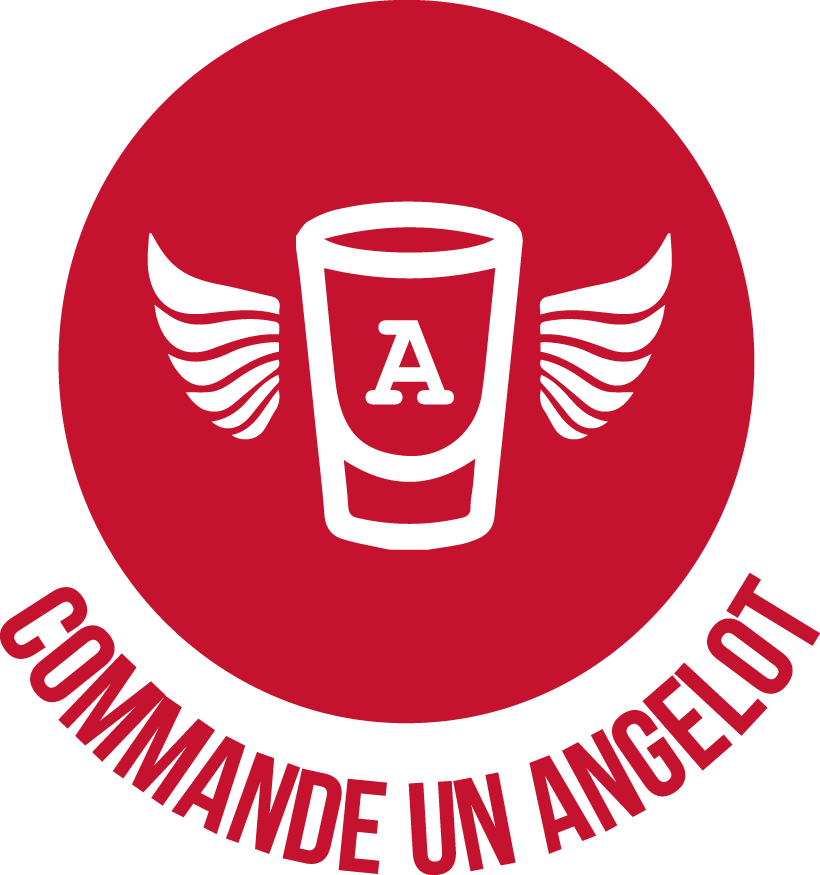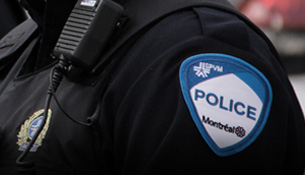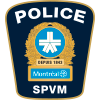Go out safely
GHB is a dangerous drug. When you’re at a bar or an event:
- Always watch your drink
- Stay in contact with your friends
- Stay in control
- Refuse any drink that wasn’t prepared in front of you
- Ask employees for help if you feel unsafe
Description
GHB usually comes as a colourless, odourless liquid. It is very difficult to detect. It is also available in powder or tablet form.
Dangers of GHB
In addition to victims who are tricked and consume it without their knowledge, GHB can also cause several problems in people who consume it voluntarily:
- Vomiting
- Coordination problems
- Delirium
- Memory loss
- Deep sleep
- Respiratory difficulties
- Decrease of heart rate and convulsions
- Permanent brain damage
- Death
Prohibited
Possession of GHB is illegal. In addition, drugging a person without their knowledge is illegal and punishable by imprisonment.
Assistance
Do not hesitate to file a complaint with the police if you have been drugged without your knowledge. In an emergency, call 911. You can also contact Info-Crime Montréal anonymously and confidentially at 514-393-1133 or via the report form available on the infocrimemontreal.ca website.
Witnesses
If you are a witness, you must also call 911 to help someone in danger. Do not hesitate to do so, because the law provides immunity for anyone on the scene during an emergency call in the event of an overdose. Your call could save a life!
PREVENTION TIPS WHEN YOU’RE AT A BAR OR AN EVENT
For yourself:
- Keep your drink with you; do not leave it unattended.
- Stay in a group, if possible, and be aware of the people around you.
- If you have to go out alone, be careful. Observe, question and trust your instincts. If you feel unsafe, ask an employee for help.
- Be careful if a stranger offers you a drink. Do not hesitate to refuse a drink that has not been prepared in front of you or has not been served directly by a bar employee.
- If you return to your drink and it has been moved, looks different, seems to have been filled up or has a strange taste, do not take the risk and throw it away.
- Remember that these substances may not only be put in alcoholic beverages but also in non-alcoholic beverages such as soda, tea or coffee.
- If your start to feel drunk after only one or two glasses, or you are being harassed, ask for help from a trusted person or a staff member at the establishment. Go to a safe place as soon as possible.
As a witness for others:
As a witness (including employees in licensed establishments), you can help someone in danger. Do not hesitate to do so, because the law provides immunity for anyone on the scene during an emergency call in the event of an overdose. Your call could save a life!
- Pay attention to people who may appear intoxicated. Do not leave them alone or in bad company. Inform the staff about any situation that appears to be suspicious to you.
- Do not leave anyone alone who is on the verge of losing consciousness, ask for help and call 911 in the event of danger, for the person’s health and safety.
- Trust your instincts. If you feel unsafe, ask an employee for help.
- Notify the manager or doorman if you’re being harassed or witnessing harassment by a customer.
If you want to intoxicate a person without their knowledge:
It’s an indictable offence liable to imprisonment.
Prohibited
Like all other illegal drugs, designer drugs are subject to Canadian laws. Possession, trafficking, or possession for the purposes of trafficking, production, importing and exporting designer drugs are illegal activities. The penalties and punishments vary according to the substance and the offence.
Possession of GHB is illegal. Simply having a small amount on you can result in penalties and a criminal record. In addition, drugging a person without their knowledge is illegal and punishable by imprisonment.
Article of the Canadian Criminal Code:
Overcoming resistance to commission of offence
246 Every one who, with intent to enable or assist himself or another person to commit an indictable offence,
- a) attempts, by any means, to choke, suffocate or strangle another person, or by any means calculated to choke, suffocate or strangle, attempts to render another person insensible, unconscious or incapable of resistance, or
- b) administers or causes to be administered to any person, or attempts to administer to any person, or causes or attempts to cause any person to take a stupefying or overpowering drug, matter or thing,
is guilty of an indictable offence and liable to imprisonment for life.
Trajectoire project
Launched by the Quebec government, the Trajectoire project is designed to enable a suspected victim of an involuntary intoxication (GHB or other substance) to quickly go to any hospital emergency room and have a urine sample taken. The hospital then contacts the local police for further action.
The presumed intoxication must have taken place within the last 48 hours, since after this time it becomes more difficult to detect the substances that may have been used.
Here are the main stages of the Trajectoire project:
Step 1
A suspected victim of an involuntary intoxication* goes to any hospital emergency room to have a urine sample taken.
Step 2
With the patient's consent, the hospital contacts the local police department to hand over the sample for laboratory analysis.
Step 3
A police officer contacts the victim directly to gather further details.
Step 4
An investigation is launched by the police force with jurisdiction over the area where the involuntary intoxication occurred.
Victims can contact their local police department at any time by dialing 911.
* The Trajectoire project is designed to provide support to suspected victims of an involuntary intoxication who have no reason to believe they have been sexually assaulted. In cases of sexual assault, victims are cared for by designated hospitals.
Assistance
Prevention and greater general public awareness are the best ways of combating GHB intoxication, which is difficult to detect. Do not hesitate to file a complaint with the police if you have been the victim or witness of crime, abuse or drugged without your knowledge (intoxication), whether or not you know the person responsible.
In an emergency, contact 911. You can also contact Info-Crime Montréal anonymously and confidentially at 514-393-1133 or via the report form available on infocrimemontreal.ca.
If the intoxication is not recent, we encourage the victim to go to their neighbourhood police station to file a complaint. Without this, the task of identifying potential suspects or places where these types of incidents occur is extremely difficult.
Order an Angelot

In partnership with the Social collective, the City of Montréal is also pursuing its actions to prevent sexual harassment and violence in bars and festive events by implementing the Order an Angelot accreditation protocol. The goal is to create a network of safe bars in Montreal.
- Visit www.commandeunangelot.com/the-project to learn more and to discover the participating bars.
Resources
Info-Crime Montréal
Anonymous and confidential
Montréal : 514 393-1133
ÉDUC'ALCOOL
https://www.educalcool.qc.ca/en/info/
Calcoholator
https://www.educalcool.qc.ca/en/tools/calcoholator/
The Beacon of the freed – Glow program
https://en.affranchies.ca/lueur
Sexual Violence Helpline
To talk to somoeone, obtain support or find out what resources are available to you.
1 888 933-9007
Tel-Jeunes
There are different ways for you to talk with a professionnal.
514 288-2266
www.teljeunes.com/Tel-jeunes-en
Help and Referral
We can help you. 24/7 Free and confidential
514 527-2626
GRIP MONTRÉAL
Their services consist of educating and making available neutral, evidence-based information about psychoactive substances (PAS)
info@grip-intervention.ca
Montréal : 514 726-4106
Learn more
Sooner really isn’t better:
educalcool.qc.ca/wp-content/uploads/2022/09/TEENS_AND_DRINKING_2023.pdf
Drinking games can be deadly:
educalcool.qc.ca/wp-content/uploads/2022/09/Calage_d_alcool_EN_REV_MAY_2023_WEB.pdf
Alcohol hangover:
educalcool.qc.ca/en/info/health-well-being/excess-risks-moderation/alcohol-hangover/
educalcool.qc.ca/wp-content/uploads/2022/09/ALCOHOL_HANGOVER_YOUTHS_MAY_2023_WEB.pdf
Alcohol and Cannabis : bad combination
educalcool.qc.ca/en/info/cannabis/alcohol-and-cannabis-bad-combination/
Alcohol and energy drinks:
educalcool.qc.ca/wp-content/uploads/2022/09/ALCOHOL_AND_ENERGY_DRINKS_2023.pdf
Alcohol and sex:
educalcool.qc.ca/wp-content/uploads/2019/11/Alcohol-and-sex.pdf



